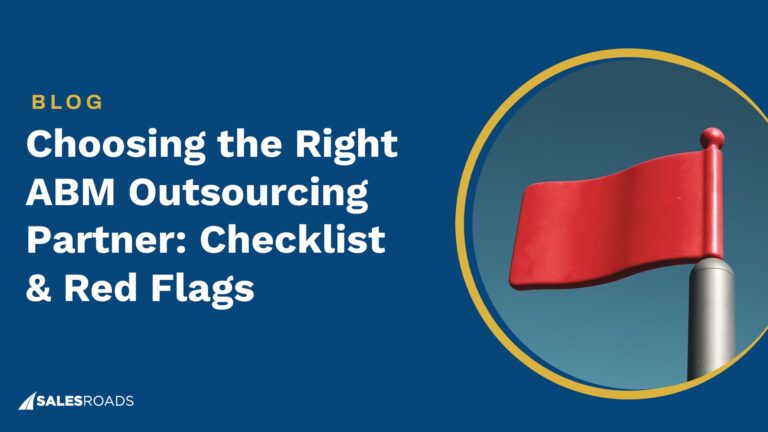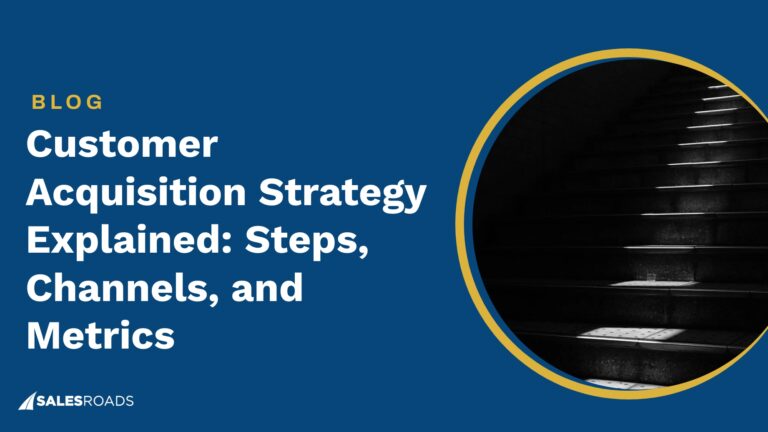The healthcare sector is complex, with numerous stakeholders, strict regulations, and lengthy decision-making processes. However, cracking the code to hospitals appointment setting opens the door to long-term partnerships, meaningful sales, and sustainable growth.
But how do you navigate these hurdles efficiently?
Why Appointment Setting is Crucial in the Healthcare Sector
In the healthcare sector, establishing strong relationships with decision-makers is critical for sales success.
Hospitals, with their multifaceted operations and complex needs, require tailored solutions that address specific pain points. Effective hospitals appointment setting is the first step in creating these relationships.
By leveraging hospitals appointment setting tactics, sales teams can ensure they’re reaching the right stakeholders at the right time.
What Makes Selling to Hospitals Unique?
Selling to hospitals presents distinct challenges and opportunities that require a deep understanding of the industry. These complexities require a more strategic approach to hospitals appointment setter tactics and a thoughtful hospitals sales strategy.
Let’s break down the key factors that make this sector unique.
Complex Organizational Structures
Hospitals often have intricate organizational structures that can make decision-making difficult to navigate. From department heads to executives, understanding the hospital’s hierarchy is essential for effective hospitals appointment setting.
Sales teams must identify the right person to contact at the right time in the decision-making process. Hospitals sales development teams must be proactive in ensuring they are connecting with the appropriate stakeholders.
Long Decision-Making Cycles
Hospital decision-making cycles can be notoriously long, often involving several layers of approval.
For hospitals appointment setting, patience is key. Salespeople must be prepared for multiple rounds of discussions, making it crucial to have a consistent follow-up strategy and clear communication throughout the process.
Knowing when to re-engage and how to stay on top of the decision cycle is part of a solid hospitals sales strategy.
Multiple Stakeholders and Decision Influencers
Hospitals are rarely a one-person decision-making entity. In large healthcare organizations, decisions often require approval from a board or committee. The percentage of doctors in hospital-owned or partially hospital-owned practices increased from 23.4% in 2012 to 31.3% in 2022. This shift adds complexity, as securing board approval tends to be more rigorous and time-consuming.
There are often multiple stakeholders involved, each with their own concerns and objectives. From financial officers to department heads, identifying the right contacts for each phase of the conversation is vital for successful hospitals appointment setting.
Sales reps must also be prepared to address diverse needs in a way that speaks to all influencers, increasing their chances of getting on the calendar.
Regulatory and Compliance Challenges
Healthcare is one of the most regulated industries, and this impacts both sales processes and the products or services that hospitals purchase.
Sales teams need to be aware of regulatory and compliance challenges when setting appointments with hospitals. Demonstrating an understanding of these regulations can help build trust with hospital decision-makers and improve the likelihood of a successful meeting.
Budgetary Constraints and Cycles
Hospitals often have strict budgets and limited flexibility when it comes to spending, especially in healthcare systems with tight financial constraints.
Hospitals appointment setter teams should be prepared to address these concerns upfront, offering cost-effective solutions that fit within the hospital’s fiscal guidelines.
Key Challenges in Hospital Appointment Setting
Setting appointments with decision-makers in hospitals can be a complex task for salespeople.
Hospitals appointment setting involves more than just contacting a single person. Sales reps must navigate through various challenges that are unique to the healthcare sector.
Dealing with Gatekeepers
Gatekeepers, such as administrative assistants or receptionists, are often the first line of defense when trying to schedule meetings with hospital decision-makers. To succeed in hospitals appointment setting, it’s essential to develop strategies for getting past these gatekeepers.
Understanding their role and the importance of your offer can help frame the conversation in a way that aligns with the hospital’s priorities. Hospitals appointment setters should be prepared to present concise value propositions that resonate with the gatekeeper.
Overcoming Budgetary Constraints
Hospitals often operate under tight budgets, especially when it comes to purchasing new products or services.
To break through budgetary constraints, salespeople need to demonstrate the long-term value of their solutions, emphasizing cost-effectiveness and the potential return on investment.
Tailoring Solutions to Diverse Needs
Hospitals have a wide range of departments, each with its own unique challenges and needs. From clinical teams to administrative units, sales teams must be able to tailor solutions that meet the specific requirements of each area.
Understanding these different needs is critical to effective hospitals appointment setting. A targeted approach increases the chances of getting a positive response from decision-makers who are focused on their department’s objectives.
Establishing Credibility and Trust
In the healthcare sector, trust is paramount. Hospitals want to know that the products and services they purchase will meet rigorous standards and improve patient care.
Hospitals sales development strategies must focus on building credibility and showcasing expertise. By providing case studies, testimonials, and relevant industry certifications, salespeople can establish their reliability and demonstrate that they understand the unique challenges hospitals face.
A strong reputation can open doors and help secure appointments with the right stakeholders.
Competition and Differentiation
The hospital sector is highly competitive, with numerous vendors offering similar solutions. To stand out, hospitals appointment setters need to highlight what differentiates their solutions from others.
Whether it’s superior customer service, innovative technology, or specialized expertise, sales teams must be able to communicate their unique value proposition clearly. Understanding the hospital’s pain points and positioning your offer as the best fit will give you a competitive edge in securing that crucial appointment.
Who Makes the Purchasing Decisions in a Hospital?
When it comes to hospital purchasing decisions, the process is often multi-layered and involves various stakeholders. Knowing who to target is key to effective hospitals sales strategy.
Understanding who makes the purchasing decisions—whether it’s procurement officers, department heads, C-suite executives, or clinical leads—will help sales teams identify the right contact at the right time.
Lead generation for hospitals becomes more effective when sales reps know exactly who to approach and how to tailor their pitch accordingly.
How to Set Sales Appointments with Hospitals?
Setting appointments with hospital decision-makers requires a strategic approach. Hospitals appointment setting is not as straightforward as reaching out to other industries due to the complexity and structure of healthcare organizations.
Identify the Right Decision-Makers
The first step in successful hospitals appointment setting is identifying the right decision-makers. Hospitals have many departments, each with its own set of decision-makers, from procurement officers and department heads to C-suite executives and clinical leads.
Understanding who holds the authority in the purchasing process is essential for efficient lead generation for hospitals. Do your research and target the right people—those who are in the best position to approve or influence buying decisions.
Craft a Compelling Initial Pitch
Your initial pitch needs to capture attention and focus on the outcomes that matter to hospitals. Sales reps should personalize the message by understanding the specific challenges the hospital faces.
Use data and success stories to demonstrate how your solution has helped other healthcare organizations overcome similar issues. By aligning your offering with the hospital’s goals, you can make a stronger case for why they should consider meeting with you.
Crafting a compelling pitch is a key component of successful hospitals appointment scheduling.
Time Your Outreach for Maximum Impact
Understanding hospital schedules and budget cycles is crucial for timing your outreach. Hospitals often have fixed timelines for budgeting and procurement, so aligning your outreach with these cycles increases your chances of securing an appointment.
By following up strategically—without overwhelming the decision-makers—you can maximize your hospitals appointment setter tactics. Use your knowledge of their schedules to follow up at the right time, ensuring you’re reaching them when they’re most receptive to new opportunities.
Leverage Multi-Channel Outreach
Relying on just one channel of communication can limit your reach. Successful hospitals appointment scheduling often involves leveraging multiple outreach methods, such as email, phone calls, LinkedIn, and even direct mail.
A well-rounded hospitals sales strategy includes diversifying your approach to increase the chances of getting noticed by key stakeholders. Multi-channel outreach helps you stay in front of decision-makers, increasing the likelihood that your message will resonate and result in a scheduled appointment.
Optimize with Technology
To streamline the process and make your outreach more efficient, consider optimizing with technology. CRM integration and automated scheduling tools can simplify the administrative side of hospitals appointment setting, allowing you to focus more on relationship-building.
Using AI-powered analytics can provide insights into when the best time to reach out is, who the most likely decision-makers are, and how to craft your messaging for maximum impact. Technology is a valuable asset in hospitals sales development, helping you work smarter and faster.
Foster Long-Term Relationships
Securing an appointment is just the beginning. Hospitals sales outsourcing can help with initial contact, but the real value comes from nurturing long-term relationships.
After meetings, follow up strategically to provide additional value, answer any questions, and keep the conversation going. Continuing to engage with the hospital on a regular basis helps solidify the relationship and positions you as a trusted partner.
Offer ongoing support, updates, and new insights that can help them achieve their goals, long after the initial sale.
Why Hire a Professional Outreach Company for Hospital Sales?
Setting appointments with decision-makers in hospitals is a unique challenge. While in-house sales teams may have the right skills, hiring an experienced vendor can elevate the effectiveness of hospitals appointment setting.
They bring expertise, tools, and a well-defined strategy to the table, allowing your team to focus on closing deals. With hospitals appointment setting services, you can streamline the scheduling process, overcome challenges, and reach key decision-makers more efficiently.
Here’s why working with a professional outreach company makes sense for hospital sales.
Expertise in Hospital Appointment Setting
Navigating the complexities of hospital decision-making requires expertise in hospitals appointment setting tactics.
Vendors specialize in hospital sales, understanding the intricacies of the healthcare sector. They know how to bypass gatekeepers, target the right decision-makers, and tailor your message to resonate with hospital stakeholders.
Their deep knowledge of hospitals appointment scheduling challenges and opportunities ensures that every call or email has a higher chance of securing an appointment.
Efficient Use of Resources
Outsourcing maximizes the efficient use of resources. Your in-house team can focus on nurturing relationships and closing deals, while your partner is on the lead generation, hospitals appointment setting, and follow-ups.
This division of labor not only saves time but also ensures that your resources are allocated effectively, resulting in a higher ROI.
Access to Industry Knowledge and Tools
Vendors that specialize in hospital sales bring industry knowledge and tools to the table. They have access to advanced technologies such as CRM systems, automated scheduling tools, and AI-powered analytics that enhance hospitals sales development.
These tools allow for better targeting, more personalized outreach, and timely follow-ups. The industry-specific knowledge they possess enables them to craft compelling messaging that resonates with hospital decision-makers, making them a valuable asset for any hospital sales strategy.
Scalability and Flexibility
One of the key advantages of outsourcing is its ability to scale and adapt to your needs. Whether you’re targeting a few hospitals or scaling up for broader outreach, hospitals sales outsourcing provides the scalability and flexibility required to meet your goals.
If your hospital sales strategy evolves, the outreach company can adjust its tactics, outreach methods, and team size accordingly. This flexibility ensures that your efforts grow in tandem with your business needs.
Need Help Selling to Hospitals?
Navigating hospitals appointment setting can be a challenge, but with the right partner, you can ensure that your sales efforts are focused and effective.
At SalesRoads, we specialize in lead generation for hospitals, helping you connect with the right decision-makers and fill your calendar with qualified appointments.
Whether you’re looking to build relationships with procurement officers, department heads, or clinical leads, we can support you in driving results and growing your hospital sales pipeline.
Healthcare Industry
We’ve helped companies in the healthcare industry build their dream pipeline.










